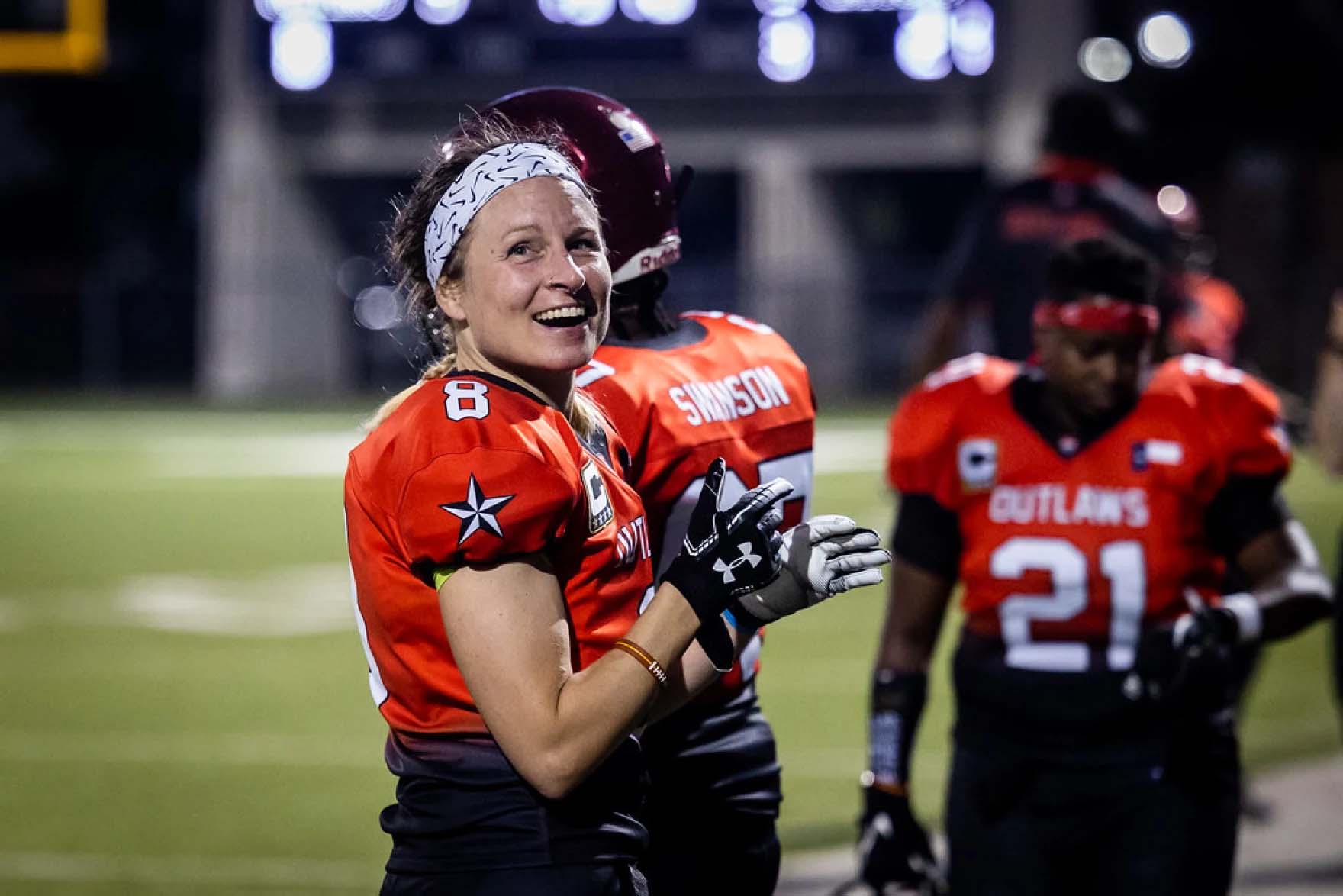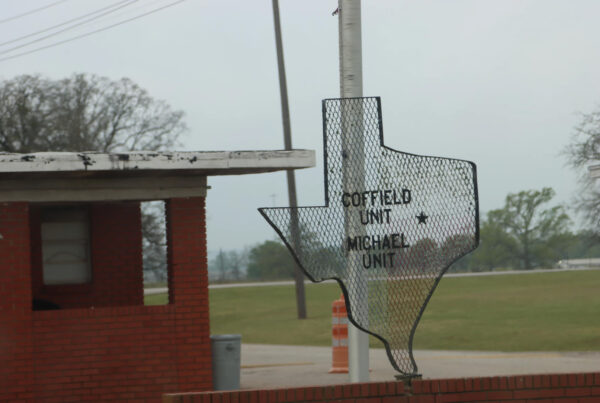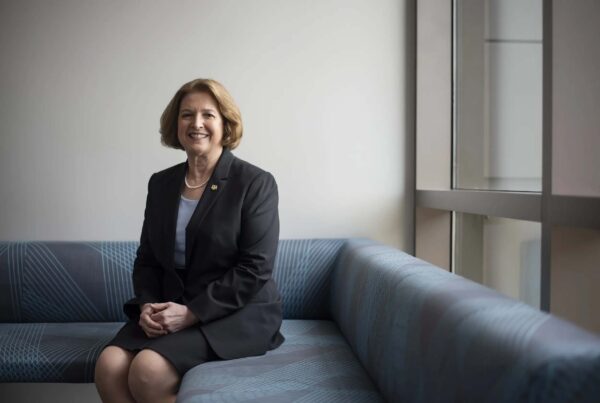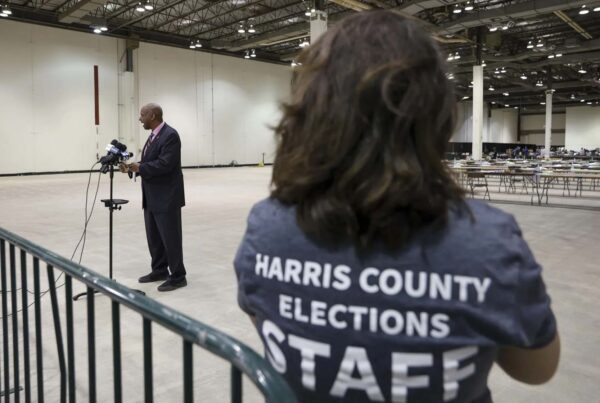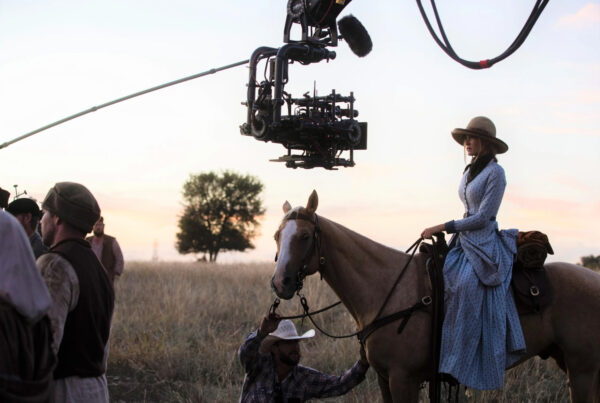From KUT:
Tasha Lemke held up a red football jersey, with white lettering and navy blue trim. The words “All-American” were stitched across the chest.
“I do actually think I’m the first deaf All-American, just historically speaking, to be a part of that team — don’t think there was anyone before me,” she said, speaking through two American Sign Language interpreters.
Lemke was showing the jersey she wore two years ago when she was selected to represent the Austin Outlaws at the Women’s Football Alliance‘s All-American Game during its National Championship weekend.
When Lemke isn’t working her day job at the IRS, she plays free safety for the Outlaws — one of the nation’s longest-running, full-contact women’s football teams. Lemke just wrapped up her fifth year with the team.
At 41, she said she’s considering retirement.
“Part of me is questioning — should I stay or should I leave?” she said. “Mentally I’m a teenager, but physically, you know, I’m older, and so I have to make that decision if I want to stay for the long haul.”
Having now spent more than 10 years in the league, Lemke said she is ready to pass on her knowledge to a new generation — particularly other deaf players.
“I’m trying to recruit other deaf players and encourage them to participate, so I can pass the baton, you know?” she said. “Teach them my knowledge. Impart the skills I have onto them, so that they can continue.”
‘No haters’
Lemke loved sports growing up. But it wasn’t until she moved to Washington, D.C., to attend Gallaudet University that she was introduced to women’s tackle football.
“I remember during the time when I was living in D.C., I heard about a full tackle league, where you wear the complete gear, it’s all women,” she said. “And I wanted to get involved.”
That team was the D.C. Divas, a professional Women’s Football Alliance team.
Lemke said she tried out for the team in 2007, but didn’t make it.
“I remember that people probably noticed, you know, I was deaf, right? I was the only deaf person there who went to try out, and maybe they didn’t want to deal with it,” she said. “Maybe the idea of trying to sign with me overwhelmed them? Maybe they felt they were better than me? I don’t know.”
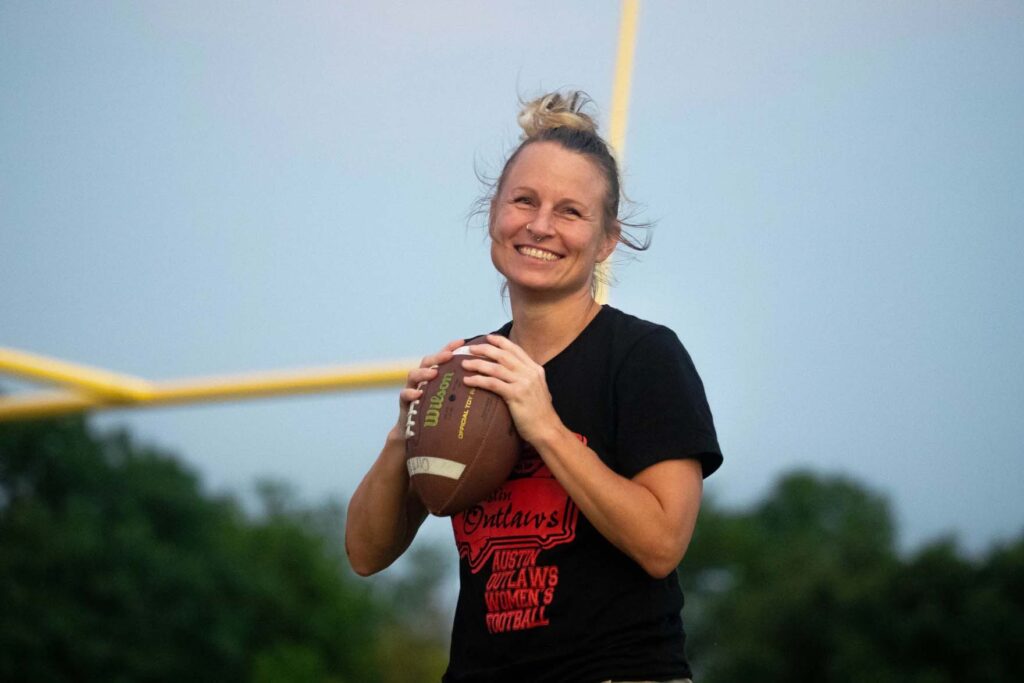
Lemke communicates with her teammates by using sign language or body language with those who don’t understand ASL.
Patricia Lim / KUT
In 2013, Lemke made her Women’s Football Alliance debut with the Columbus Comets (now known as the Columbus Chaos) — a semi-professional women’s tackle football team in Ohio.
Lemke said she remembers the first time she suited up in full pads for a game.
“I felt so tough. … It felt really good,” she said.
At one point in the season, her team played the D.C. Divas.
“That’s where they saw me play, ironically,” Lemke said. “After that year, I remember I moved back to D.C. ,and actually ended up trying out again and … made the team.”
While in D.C., Lemke said she was mentored by a deaf employee at Gallaudet.
“He used to be part of the university’s football team,” she said. “He actually volunteered to help me, teach me, guide me.”
Lemke played one season for D.C. The next year, in 2015, she moved to Austin.
After a short stint with the Austin Yellowjackets in the now defunct Independent Women’s Football Alliance league, Lemke joined the Outlaws in 2018.
She said she feels lucky to be playing with the team.
“There’s no haters on this team,” she said. “We love each other. We’re always there for one another.”
A teammate and mentor
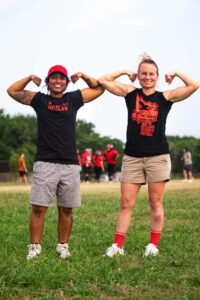
Alisa Powell poses with Lemke during practice last month.
Patricia Lim / KUT
Like Lemke, teammate Alisa Powell is deaf.
Before tearing her ACL, the 31-year-old spent her 2023 rookie year playing defense alongside Lemke.
“She’s experienced with the positions that I currently play, and so I learned a lot from her,” Powell said, speaking through interpreters. “It’s nice to have her — to have a deaf mentor, someone who’s experienced in football.”
Lemke said her mentorship of Powell has become more important as she nears the end of her playing career with the Outlaws.
“I want to be able to train her more, mentor her more,” she said. “And just get through the season with her, until I’m ready to say, ‘OK. You’re on your own. I can let you go. Do your thing.'”


